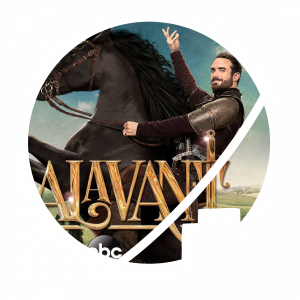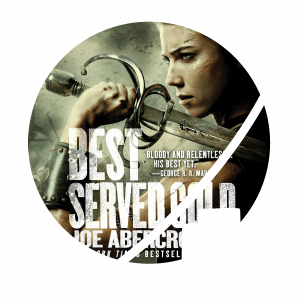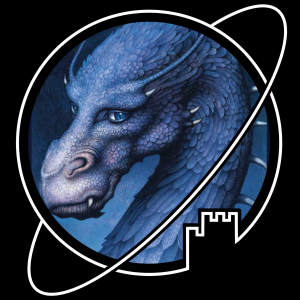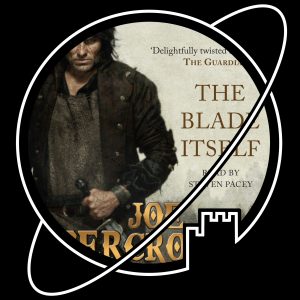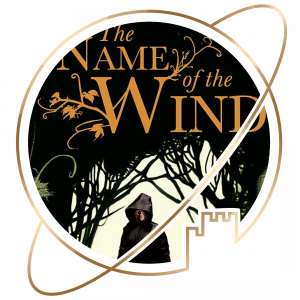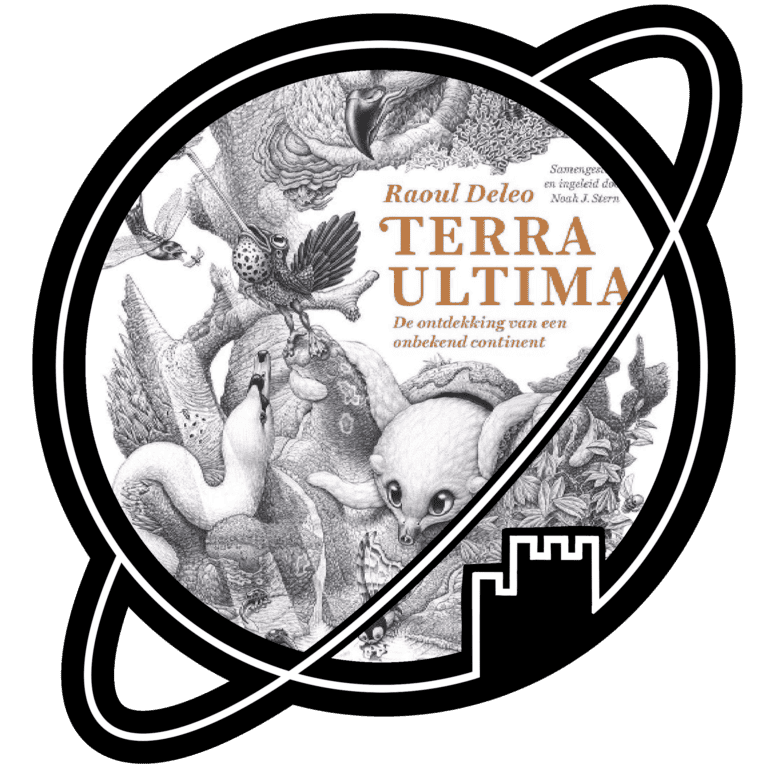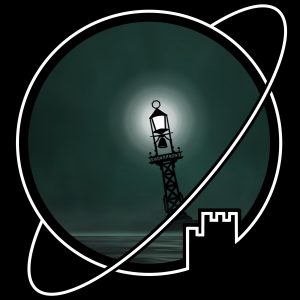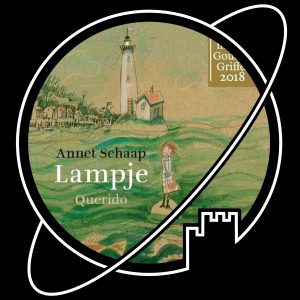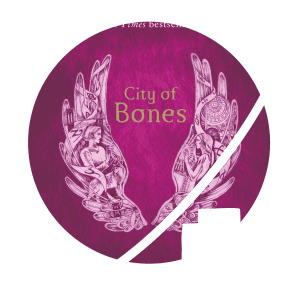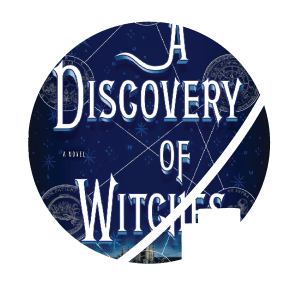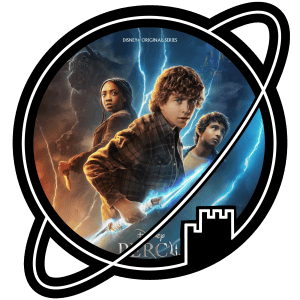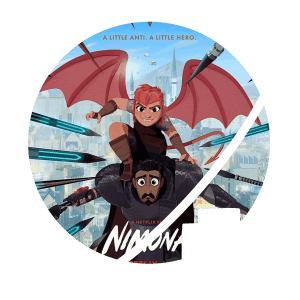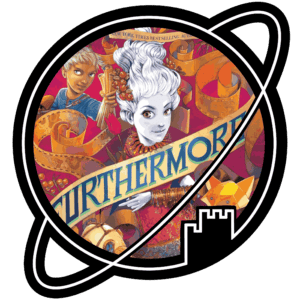Welcome to the Escape Velocity Collection!
We are an opinionated group of friends reviewing all sorts of fantasy and science fiction media. Don’t forget to get to know the curators and visit our curated Collection, where we discuss the stories that never cease to transport us to another world.
Will you escape with us?
LATEST POSTS:
- Movie directed by François Uzan
- Based on the game The Werewolves of Millers Hollow
- Starring Franck Dubosc, Jean Reno, Suzanne Clément, Grégory Fitoussi and Bruno Gouery
- Released in October 2024
- Runtime: 94 minutes

I shall admit my expectations for this movie weren’t very high beforehand. A story based on the game The Werewolves of Millers Hollow? Maybe I’m biased by my previous experiences with adaptations of video games and board games, but I couldn’t see much appeal. However, I was in the mood for something less challenging (I had just finished my rewatch of Black Sails, which is not fantasy but certainly a recommendation) and I like werewolves, so… why not?
Against my expectations, my effort was rewarded with a story filled with underutilized potential. This might not sound as much, but I was pleasantly surprised. There are some good ideas in Family Pack, specifically the different ‘roles’ from within the game and how they could be applied in a more realistic setting, as well as the family dynamics (I was actually touched by the little character arc of the grandfather, for example). With a little more polishing, or different directing goals, the story could have easily been more memorable.
However, as it stands now, Family Pack is mostly a decent, fast-paced movie for the whole family, with what I would call ‘typically French humour’ (my main point of reference for this being the Asterix & Obelix live action movies, so take it with a pinch of salt). A fine way to fill up a lazy evening, but unlikely to make a lasting impact on your life.
- Novel written by Joe Abercrombie
- Published 3 July 2014
- Part 1 of the Shattered Sea Trilogy


Listened to the audiobook with Ben Elliot. Well narrated.
I loved Joe Abercrombie’s style of prose in the First Law-world. I think that the First Law-trilogy itself was good, but not amazing. The individual characters were great – Logen Ninefingers and Inquisitor Glokta are memorable and gruesome and creepily easy to empathise with. But the overarching story took a long while to get going and was perhaps just a little vanilla. Abercrombie first really hooked me with the three ‘standalone’ novels in the First Law-world that came after the trilogy, that focussed more on some of those great characters.
So when I picked up Half a King, I was very curious where the Shattered Sea-trilogy fit on the spectrum.
The first thing to note is that the books are significantly shorter than the First Law-books, and it shows in the pacing. The adventure starts pretty swiftly and keeps moving at high speed until the book’s conclusion.
Because of the amount of story crammed into the relatively short novel (for a fantasy book) due to the high pace, there is not as much attention to worldbuilding or even to character as I might have liked. I liked the grounded, low fantasy setting (with some …potential post apocalyptic vibes?), but it remains in the background throughout.
The result is that Half a King was an enjoyable enough read, but also lacked the depth to really get me invested. I also found that the prose was missing some of the dry humour and flourishes that made me appreciate it so much in the other Abercrombie works I have read.
It is notable that the book sticks very close to the classic Hero’s Journey. It was not jarringly obvious, but more seasoned readers of fantasy might find the patterns a little predictable.
I have seen the Shattered Sea-books labelled Young Adult. I can see that they are more suited to younger Fantasy readers than Abercrombie’s other works. I get that they are significantly less grim and a simpler in story than the First Law-books.
However, Half a King is by no means the romcom with a fantasy veneer that YA Fantasy has a reputation for. It is a simple, broadly enjoyable fantasy story with just enough going on to help me race to the end in a handful of days.
I will continue with the trilogy and report back to you – perhaps some of that mysterious post-apocalyptic-looking stuff will play up in the next books, and it will turn out that the story doesn’t just take place in the pseudo-Baltic but the actual Baltic in some distant future. We will see!
Tagged:
See also:
- Novel written by Ursula Le Guin
- Published in 2001
- Part 5 of the Earthsea Cycle
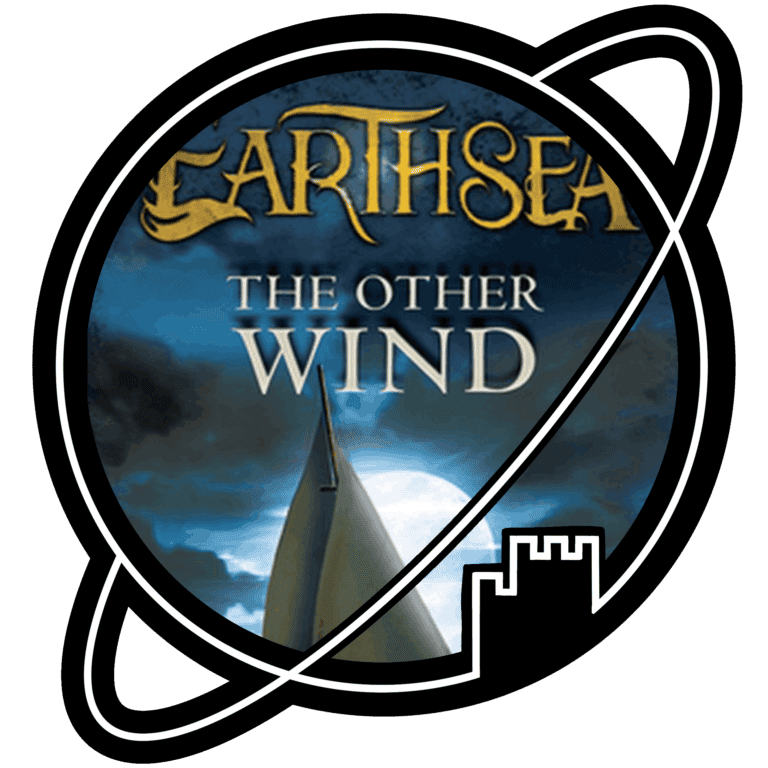

Listened to the audiobook with Jenny Sterlin – well-read.
Usually I am a big fan of shorter form fiction: I love shorter stories that focus on ideas, on showing different sides of a character, or that really build a world.
I think Tales from Earthsea tries to be the latter – the final ‘story’ in the book is even a very explicit reference section on the history and cultures of Earthsea. But perhaps somewhat surprisingly, while I enjoyed Tales from Earthsea fine, I don’t think it added that much to the worldbuilding Le Guin already did in the previous instalments of the series.
I got the feeling that Tales from Earthsea was three or four Earthsea-novels condensed into one book, just with the stories told in fewer words. Usually I am a big fan of efficiently telling stories. In this case, however, I felt like some tales would have benefited from just a little more time to let the characters grow on me. As it was, the stories moved just a little too quickly for me to ever really be invested the way I was in, for example, Tehanu.
I think this is telling on what makes The Earthsea Cycle great for me: it is the characters in emotionally moving stories against a backdrop of interesting but ultimately very simple worldbuilding that draws me in, not the depth or details of Earthsea itself.
Having said all that, Tales from Earthsea does include a number of moving stories and learning about the history of the school of magic on Roke island is lovely. The collection of stories also continues the feminist theme that Le Guin put at the heart of Tehanu.
The honest truth is that while Tales from Earthsea is a fine book, it felt a bit like a stepping stone between Tehanu and the The Other Wind for me, a quick stop in between the rest of The Earthsea Cycle that Le Guin almost seems to have written for herself more than for the reader.
Still, armed with the knowledge that I have now, I am more than curious to dig into the final instalment of the Cycle, and learn about the final episode in Ged’s and Tenar’s life!
Tagged:
See also:
- Novel written and illustrated by Raoul Deleo
- Published in 2021

Sometimes children’s literature can be works of art, literally. If you ask me, Terra Ultima: The Discovery of a Hidden Continent is a clear example of this. It’s challenging to explain the charm of this book, without risking completely spoiling it. To still reveal something of the premise: Terra Ultima presents itself as a reflection on a few scientific expeditions towards an unknown continent full of wonderful new creatures. We view these expeditions through the eyes of biologist Noah J. Stern, who has compiled the notes and zoological illustrations of fellow scientist and world explorer Raoul Deleo. The result is a truly unique book with stunning, fantastical illustrations and a narrative that transported me back to more mysterious times in which we humans had yet to categorize the majority of our world’s species.
Apart from the imaginative illustrations – I can’t stress enough how cool these are – Terra Ultima consists of writing that neatly balances between pseudo-scientific, humorous and accessible language. Where children might read this book and enjoy a (semi-)realistic adventure story, “grown-ups” can entertain themselves with the numerous little jokes hidden throughout the binomial nomenclature.
- Novel written by Ursula Le Guin
- Published in 2001
- Part 5 of the Earthsea Cycle
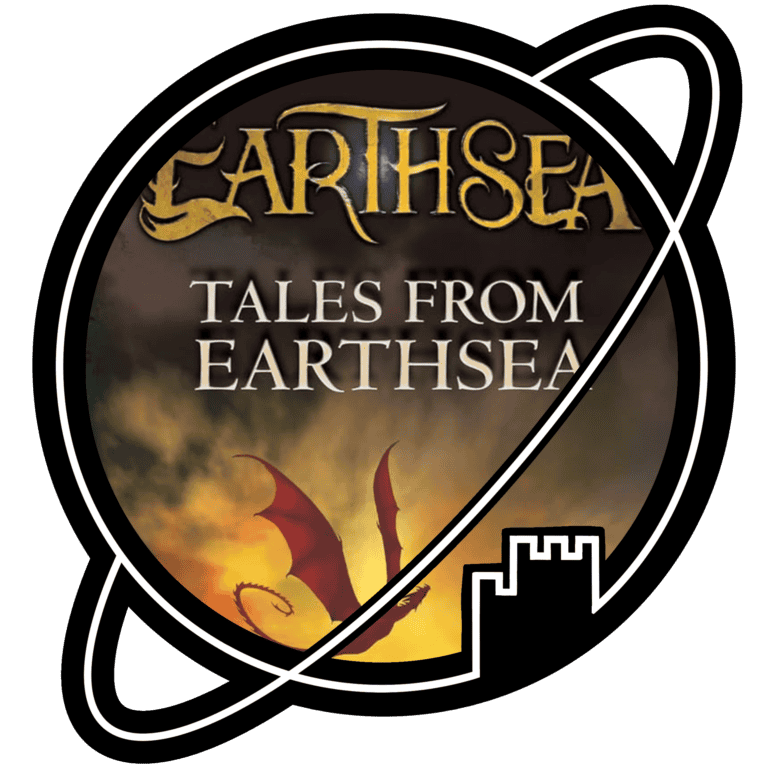

Listened to the audiobook with Jenny Sterlin – well-read.
Usually I am a big fan of shorter form fiction: I love shorter stories that focus on ideas, on showing different sides of a character, or that really build a world.
I think Tales from Earthsea tries to be the latter – the final ‘story’ in the book is even a very explicit reference section on the history and cultures of Earthsea. But perhaps somewhat surprisingly, while I enjoyed Tales from Earthsea fine, I don’t think it added that much to the worldbuilding Le Guin already did in the previous instalments of the series.
I got the feeling that Tales from Earthsea was three or four Earthsea-novels condensed into one book, just with the stories told in fewer words. Usually I am a big fan of efficiently telling stories. In this case, however, I felt like some tales would have benefited from just a little more time to let the characters grow on me. As it was, the stories moved just a little too quickly for me to ever really be invested the way I was in, for example, Tehanu.
I think this is telling on what makes The Earthsea Cycle great for me: it is the characters in emotionally moving stories against a backdrop of interesting but ultimately very simple worldbuilding that draws me in, not the depth or details of Earthsea itself.
Having said all that, Tales from Earthsea does include a number of moving stories and learning about the history of the school of magic on Roke island is lovely. The collection of stories also continues the feminist theme that Le Guin put at the heart of Tehanu.
The honest truth is that while Tales from Earthsea is a fine book, it felt a bit like a stepping stone between Tehanu and the The Other Wind for me, a quick stop in between the rest of The Earthsea Cycle that Le Guin almost seems to have written for herself more than for the reader.
Still, armed with the knowledge that I have now, I am more than curious to dig into the final instalment of the Cycle, and learn about the final episode in Ged’s and Tenar’s life!
Tagged:
See also:
- Novel written by Anne Rice
- Published in 1985
- Book Two of the Vampire Chronicles


I bought this book new at the store. That’s unusual for me – normally, I find my books at the thrift store. I’ll read whatever comes my way, I don’t tend to go out of my way to read a specific book. Despite having plenty of books to read at home (relatable, I’m sure), I decided to pick this up because I was genuinely excited to read it.
Like many, I’m sure, I’m a little bit tired of the way we depict vampires nowadays. Vampires have always been cool, but I’d love to go back to the type of vampires who don’t quite fit in. I like classic, flamboyant vampires, like those in What We Do In The Shadows. I guess I just don’t really like it when vampires wear jeans.
I should preface this by saying that Lestat is technically the sequel to Interview with a Vampire, which I haven’t read. I didn’t feel like I was missing out on much, except perhaps at the very end of the book. Even the last chapters are perfectly understandable, as long as you’re aware that the book Interview with a Vampire exists.
Storywise, The Vampire Lestat didn’t start off very strong. It really didn’t grab me until after he was turned into a vampire. Unfortunately, quickly after this, some stuff happened that made me go “Hmmmmmm, no thanks”. This is followed by a whole lot of no plot, until we get some insight into the history of vampires, which I did enjoy. There are perhaps three scenes in the whole book that take place in the “now” – the 1980’s.
Ultimately, I think the strongest part of this book is the exploration of what a creature that’s been alive for over a thousand years might be like. Lestat himself is probably the least interesting character in this novel, but I think he’s supposed to be. He is intentionally kept quite “human” so the audience can connect to him. However, this does mean that I was left wondering if I wouldn’t have preferred to read a book about his mother, Gabrielle, instead.
It’s hard to write an elaborate review on a book that didn’t inspire much emotion in me. I definitely didn’t hate The Vampire Lestat, but I also wouldn’t say it’s particularly… worth reading? You’re probably better off reading something like A Discovery of Witches, which will actually make you feel something (unbridled rage, but at least that’s something).

Review: Family Pack – Netflix
In a hopeful attempt to bond with each other, a family attempts to play a mysterious game together, passed down by earlier generations. The game soon becomes very serious, however, when they find themselves transported to a medieval town, beset by werewolves.

Review: Half a King – Joe Abercrombie
Yarvi was training to become a minister, but when his father, the king of Gettland, and his older brother are killed by warriors of neighbouring Vansterland on a sea voyage, he is called to the throne instead. But how can a weak man with only one healthy hand lead the nation of Gettland – and how can a man that is only half a man avenge the death of his father against the Vanstermen?

Review: The Other Wind – Ursula Le Guin
Alder is a village sorcerer whose dreams are haunted by his dead wife Lily, reaching across to him across the Wall of Stones that separates the land of the living from the land of the death. Alder travels to the mages of Roke for counsel, but they send him on to speak to Ged, once arch-mage, who now lives a quiet farmer’s life on Gont; for Ged knows more of the land of the dead than anybody alive in Earthsea.

Review: Terra Ultima: The Discovery of a Hidden Continent – Raoul Deleo
Most people believe the far corners of the earth have been completely mapped out. If that’s the case, however, how come so few people know about Terra Ultima?
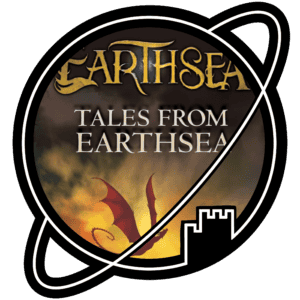
Review: Tales from Earthsea – Ursula Le Guin
In this collection of novellas and short stories, Ursula Le Guin discovers places and eras of Earthsea that neither she nor the reader visited before, fleshing out and filling in the history of Earthsea and its wizards: from the origins of the school of magic on Roke Island to the first time a woman enters the front door of the exclusively male institution in a long time.

Review: The Vampire Lestat – Anne Rice
After waking up from a deep slumber in the 80’s, Vampire Rock Star Lestat reflects on the life that’s brought him to this moment. From his mortal life in the 1700’s to the lives of vampires even more ancient, Lestat explores what it means to live forever.












